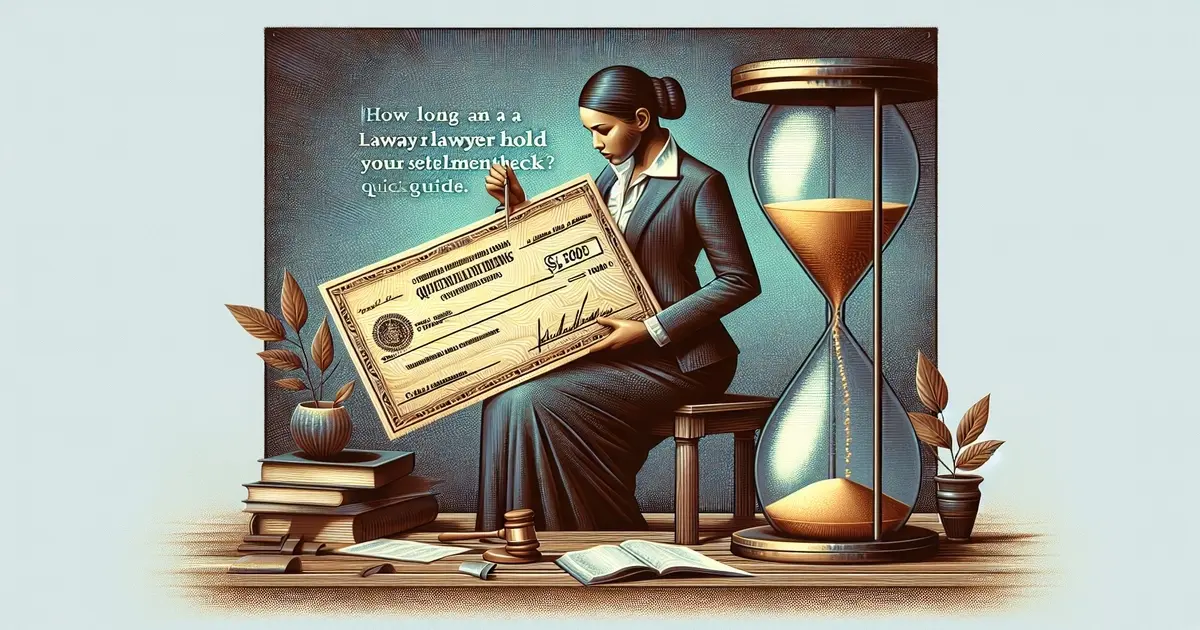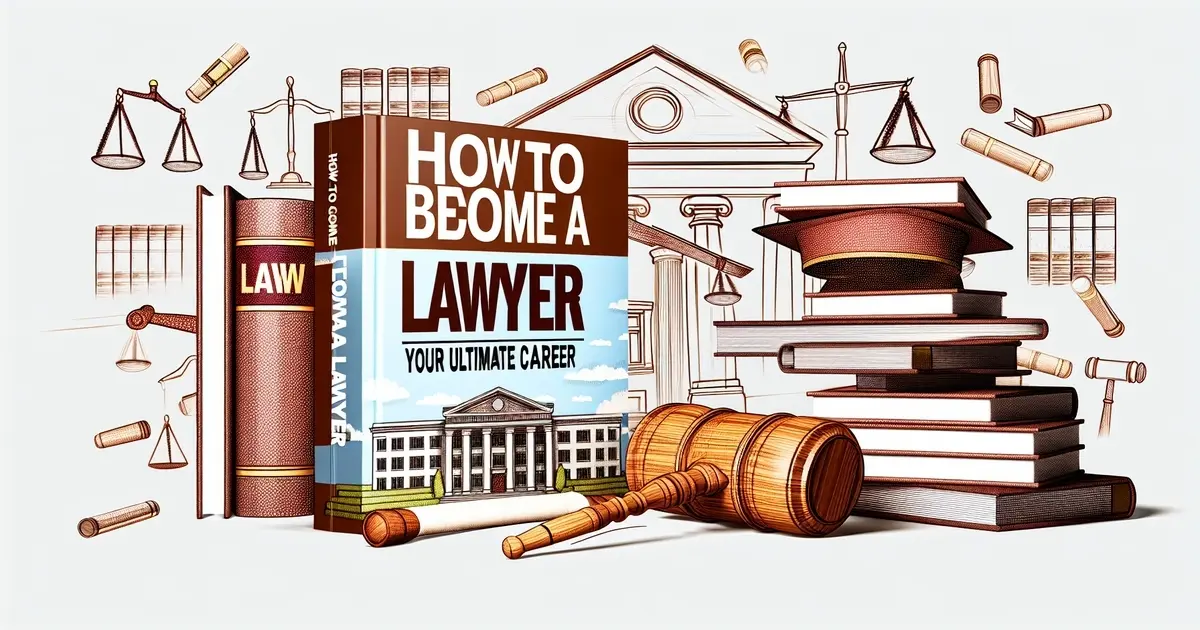How to Know if Your Lawyer is Selling You Out? Uncover the Truth
Did you know that 75% of clients express dissatisfaction with their legal representation, feeling their interests need to be fully represented at some point? A staggering number brings us to the uncomfortable question: how can you tell if your lawyer is selling out your interests to other clients? Navigating the murky waters of legal trust isn't for the faint-hearted, but it's crucial for protecting clients' interests.
Whether it's feeling like just another case number or noticing that confidential info seems to slip where it shouldn't, these red flags demand attention. This post dives into what signs to watch for and how to confront this betrayal without losing your cool or case. Let’s get straight into decoding the loyalty of your legal eagle.
Table Of Contents
Recognizing Red Flags in Your Attorney
Lack of Interest
One major red flag is a sudden lack of interest or engagement in your case. This can manifest as your attorney needing to return calls or emails promptly. They may also seem disinterested during meetings, paying little attention to the details you provide.
Another sign is if they're always rushing through conversations with you. It's like they're there but not present. This behavior could indicate that they must be fully committed to achieving the best outcome for your case.
Missed Deadlines
Having deadlines or court dates with valid reasons is a serious concern. It's normal for schedules to shift occasionally, but consistent failures are problematic.
- If your attorney misses filing deadlines, it can harm your case.
- Court dates are critical; missing these could lead to negative judgments against you.
This behavior shows a lack of professionalism and respect for the legal process and your trust in them.
Unwillingness to Communicate
An unwillingness to answer questions directly is another significant red flag. A trustworthy attorney should be transparent about their strategies and decisions regarding your case.
If you find yourself getting vague responses or if they dodge specific questions about the progress of your case, it’s time to worry. These actions suggest they might not have a solid plan, or worse, something might be amiss with handling things.
- A sudden lack of interest indicates disengagement.
- Missed deadlines compromise the integrity of your case.
- Evasive communication raises doubts about transparency.
In cases involving injuries, where stakes are high, and emotions run deep, having an attorney who sells you out can have devastating consequences on both personal and financial fronts.
Recognizing these red flags early allows you to directly address concerns with your attorney or seek alternative representation before any real damage occurs. Trusting someone with legal matters requires confidence in their commitment and abilities; don't ignore signs that suggest otherwise.
Identifying Signs of Unethical Behavior in Your Lawyer
Making Decisions
Your lawyer should always involve you in the decision-making process. If they make choices without your consent or knowledge, it's a red flag. This behavior can lead to unprofessional conduct and harm your case.
Lawyers must communicate with their clients. They should explain options and get approval before acting. If this isn't happening, question their methods.
Unrealistic Promises
Beware of lawyers promising guaranteed outcomes. It's not only unethical but often leads to disappointment. Such promises can indicate desperation or dishonesty.
No outcome is ever guaranteed in legal matters. A trustworthy lawyer will be honest about your case's strengths and weaknesses.
Unexplained Expenses
Requesting payment for unexplained expenses is concerning. Always ask for itemized bills from your lawyer.
- Pros: You understand what you're paying for.
- Cons: Some may need more time to provide detailed billing.
Lawyers should explain all charges upfront. Hidden fees are a sign of potential legal malpractice cases.

Assessing Lack of Communication with Your Attorney
Delayed Updates
Sometimes, days or weeks might pass without any news on your case. This silence can be alarming. You expect regular updates, especially when dealing with court matters. A good lawyer should keep you informed.
When you notice this pattern, it's a red flag. It means they might not be prioritizing your case the way they should. In court issues, timing is crucial. Delays can affect the outcome badly.
Ignored Communications
Have you ever felt ignored? It's frustrating when calls and emails go unanswered—especially concerning something as critical as a legal matter.
Consistently ignored communications signal a problem. Lawyers are busy, but they have systems to manage their workload. If yours needs to respond promptly, question why.
Vague Responses
Finally, getting through only to receive vague responses is disheartening. When you ask about your trial or documents related to your issue, it's essential to have a clear understanding.
Vague answers often mean a lack of attention or failure to handle your case correctly. They should provide clear information and the next steps every time you communicate.
Understanding Conflict of Interest in Attorney-Client Relationship
Opposing Clients
When your lawyer represents another client with interests that clash with yours, it's a red flag. This situation often leads to divided loyalties, harming your legal position. Imagine you're in a business dispute, and your lawyer is also advising the competitor you're up against. Your confidential information might not be safe.
Lawyers should avoid representing clients who are direct competitors or have opposing goals. If they do take on such cases, they must inform all parties involved and get consent from everyone.
Personal Connections
Sometimes, lawyers have personal relationships with people on the other side of your case. These connections could cloud their judgment or loyalty to you as their client. For instance, if your lawyer has a close friend or family member in the company you're suing, this could be problematic.
Lawyers must disclose any personal ties affecting their professional relationship with you. They need to ensure no conflict of interest would hinder their ability to represent you fully.
Financial Interests
Financial interests can also lead to conflicts between a lawyer and their client. If a lawyer stands to gain financially from a particular outcome in your case—other than being paid for their services—it raises concerns about where their loyalties lie.
For example:
- Owning stock in a company involved in litigation against you.
- Having financial ties to an entity on the opposing side of your legal matter.
Lawyers must keep financial interests separate from their professional duties and client obligations.
Recognizing Lack of Transparency, Honesty, and Potential Conflicts in Billing, Payments, and Unprofessional Conduct Towards Clients
Unexpected Charges
You notice charges for services not discussed before. This is a red flag. Your lawyer should always talk to you about costs beforehand. If new fees pop up without explanation, question them.
Lawyers often bill for various tasks, including research, drafting documents, or making phone calls. However, all these should be agreed upon as soon as possible. When unexpected charges appear on your bill for services like lengthy phone calls you didn't know happened or meetings that never took place, it's time to raise an eyebrow.
Billing Clarity
Your lawyer won't be able to provide itemized billing when asked. This need for more transparency is concerning. You have the right to see where your money goes.
An itemized bill breaks down costs so you can understand each charge clearly. It might list the time spent on research, court appearances, or consultations. Trust issues may arise if your attorney dodges when you ask for this detail or gives vague answers about payments and costs.
Cost Discrepancies
Significant discrepancies between estimated and actual costs need addressing immediately. A little difference might be understandable due to unforeseen circumstances in legal battles; however, huge gaps are unacceptable without a good reason.
Before starting their service, many lawyers estimate the total cost based on their understanding of your case's complexity and the potential lengthiness of settlement negotiations or trial proceedings.
When the final invoice comes back significantly higher than these initial estimates without clear reasons why additional expenses were necessary (such as unexpected developments in your case requiring more work), it's essential to discuss these concerns with your attorney as soon as possible.
Identifying Violation of Confidentiality by Your Attorney
Unauthorized Discussions
Your lawyer discussing your case with uninvolved people is a big red flag. This could be friends, family, or even other clients. Such actions break your trust in them to keep your matters private.
Imagine you're involved in an accident case. You can share all details with your attorney if you like discretion. But then, you hear someone outside the legal circle knows specifics about your situation. This breach can damage not just your case but also your personal life.
Information Leaks
Leaks of sensitive information are severe breaches of confidentiality. If details that could hurt your position become public, it's a sign something is wrong.
For example, let's say there's specific evidence that should only be known within the courtroom walls or between legal parties. If this information leaks and reaches the opposing party or media, it compromises your standing and strategy.
Personal Gain Misuse
Using confidential information for personal gain is unethical and illegal for attorneys.
If you find out that any detail shared with them has been used for their benefit—be it financial advantage or gaining leverage in another unrelated case—it indicates they are selling you out.
This misuse might look like insider trading based on a business dispute’s outcomes or using knowledge from one client to advise another improperly.
Knowing When to Consider a New Lawyer
Gut Feeling
Trust your gut. It might be time to reconsider if you constantly feel uneasy about your lawyer's intentions. This unease can stem from their communication style or how they handle your legal case. These could be signs that you feel ignored or your actions seem off.
A negative gut feeling often arises when expectations aren't met. For example, doubt creeps in if you expect regular updates on your case but receive none. A lawyer-client relationship must have trust at its core.
Unethical Practices
Discovering unethical practices is a serious red flag. Strict ethical codes bind lawyers, and any deviation should concern you deeply. These practices can range from lying to the judge to mishandling funds.
This information is usually public record if disciplinary actions have been taken against them. A quick search can reveal if they've faced sanctions or warnings from professional bodies.
Professional Advice
Sometimes, we need an outsider's perspective to see clearly. Trusted professionals like other lawyers or advisors can provide valuable insights into whether your current legal representation upholds their duty.
They might notice things you've missed and suggest making a change to improve your case.
- Objective viewpoint
- Expertise in law
- Awareness of standard practices

Steps to Take if You Suspect Your Lawyer Is Selling You Out in Your Legal Case: Understanding Your Legal Situation, Rights, and Other Attorneys
Document Everything
The first step in confirming your suspicions involves documentation. You can start by keeping a detailed record of all interactions with your lawyer. Email, calls, texts, and face-to-face conversations should be noted with dates and times. If they've taken actions that seem questionable, document those too.
Documentation serves as concrete evidence if you need to take further action. It can help highlight patterns of behavior that are not in your best interest. Remember, maintaining these records could be crucial in proving any misconduct.
Seek Second Opinion
Getting a second opinion is wise when things don't feel right. Look for an independent legal advisor who can review the details of your case without bias.
A fresh set of eyes on your situation might reveal insights you still need to consider or confirm your doubts about being sold out. When consulting another lawyer, present them with all the documentation you've gathered so far; this will help them give you accurate advice.
Report Concerns
If, after taking these steps, you're convinced something is amiss, it’s time to report your concerns:
- Contact the state bar association directly.
- Provide them with all documented evidence.
- Explain why you believe there's been misconduct or unethical behavior.
Reporting a concern starts an investigation process that could protect others from similar experiences while ensuring justice for yourself.
Understanding how to navigate this challenging scenario empowers you to safeguard your legal rights effectively and ensures that professional conduct standards are upheld within the legal community.
How to Fire Your Attorney for Unprofessional Conduct If They Are Selling You Out as Their Client
Contract Review
The first step is reviewing your contract. Look for termination clauses or requirements. This tells you how to end the agreement legally.
Contracts often have specific steps for ending the relationship. Make sure you understand these before moving forward. Ignoring them could lead to issues later.
Secure Documents
Next, secure copies of all case files and documentation. Do this before notifying your lawyer about the termination.
A complete set of documents ensures you can continue your case without delays. It also protects you if there are disputes over the representation.
Formal Notification
Finally, it's time to let your attorney know you want to terminate their services.
In your letter, cite reasons clearly, but avoid emotional language. Stick to facts and keep it professional.
By following these steps, firing an attorney who is not serving your best interests becomes more transparent and straightforward. Remember, securing a new attorney beforehand can make this transition smoother. Trust is vital in any client-attorney relationship; don't hesitate to act if that trust breaks down.
Trust is the bedrock of any attorney-client relationship, but sometimes that foundation cracks. If you've noticed red flags, such as lack of communication, unethical behavior, or a breach of confidentiality, it's crucial to trust your gut. Remember, you're not stuck. You have options and steps to reclaim control—confronting your lawyer or deciding it's time for a fresh start with someone new. It's about protecting your interests and not leaving you in the lurch.
Let's cut to the chase—your peace of mind and case outcome are too important to ignore these warning signs. If any bells are ringing, don't hesitate to act. Consider this a nudge to evaluate your situation and, perhaps, make that tough decision. After all, it's your right to have an attorney in your corner through thick and thin. Got doubts? It's time to get on top of them.
Frequently Asked Questions
How can I tell if my lawyer is not being honest with me or engaging in unprofessional conduct during my trial?
If your gut says something's off, it might be. Watch for red flags like dodgy answers to your questions, clarity billing, or a sudden lack of communication. It's like when your friend starts avoiding you - something's up.
What are the signs of unethical behavior in a lawyer?
Unethical behavior smells fishy – think violating confidentiality, having conflicts of interest (like representing both sides), or billing for work that seems phantom-like. If it feels wrong, it probably is.
Is it normal for my lawyer to not communicate with me regularly during a trial, or is it considered unprofessional conduct towards clients seeking help?
Nope, that’s a bad sign. Your lawyer should be more reliable than a daily coffee fix - there when you need them and keeping you in the loop without you having to chase them down.
How do I know if there's a conflict of interest with my attorney regarding law, interests, clients, and help?
It’s like finding out your best friend is also friends with your arch-nemesis; things don’t sit right. If your attorney has ties that could compromise their loyalty to you, alarm bells should ring.
What should I do if my attorney violated confidentiality, compromising the law and clients' interests?
First off: Don't panic. Think of it as catching someone gossiping about you - take steps to protect yourself by documenting everything, getting advice on firing them, and finding someone who respects the vault-like nature of confidentiality.
When should I consider hiring a new lawyer?
When trust flies out the window faster than an express train leaves the station – think of a consistent lack of communication, shady billing practices, or feeling like they’re not in your corner. Trust your instincts; they're usually right.
How do I fire my attorney if they sell my interests to other clients?
Straightforward but respectful – get all ducks in a row first (like records and unpaid bills), then deliver the news firmly yet politely. It’s like breaking up: tough but sometimes necessary for everyone’s sake.
Related Post
What Does a Lawyer Wear?
Did you know that 75% of people form their first impression of a lawyer based on appearance, impacting judges and the justice system?
Read MoreWhat Happens If a Lawyer Loses a Case
Have you ever wondered about the ripple effects when a lawyer or attorney doesn't win in court, especially under a contingency fee arrangement or contingent fee with the jury involved?
Read MoreWhat Are the Highest Paid Lawyers?
Have you ever wondered why some lawyers in their legal career, specifically big law investors, drive luxury cars while others seem to scrape by with their jobs and money?
Read MoreHow Do Pro Bono Lawyers Get Paid?
Have you ever wondered how lawyers, often working for nonprofit organizations or on contingency fees, keep the lights on while providing free legal services for disability cases?
Read MoreHow Long Can a Lawyer Hold Your Settlement Check?
Have you ever wondered why getting your hands on your settlement check feels like forever, with money sitting in trust accounts, balancing client trust?
Read MoreHow to Become a Lawyer
Did you know that there are over 1.3 million active attorneys in the United States alone, including law students from law schools and those in law firms practicing law?
Read More






